5 Homemade Cleaners that Perform Better Than Expensive Brands
Why bother? Why go to the trouble of homemade cleaners when buying commercial products is so much easier? That was my arrogant response years ago when the idea of making my own cleaning products made no sense to me at all. I’ve come a long way!
Why Homemade?
Here are my top four reasons to make your own cleaning products:
- It takes as little as 30 seconds to mix up any number of homemade natural cleaning products—a lot less time than finding the right aisle in the store.
- Homemade cleaners give you complete control over the ingredients. Conventional cleaning products often contain toxic chemicals, harsh smells, noxious fragrance, unpleasant residues, or allergy-inducing irritants.
- Making your own cleaning products is super cheap when they use simple everyday ingredients—things you may have already in your pantry.
- Homemade cleaners using natural ingredients often perform equally well if not better than expensive name brands cleaners.
Come to think of it, I can’t really think of any valid reasons not to make our own household cleaning products.
Note: When you scroll way down, you will find printable recipe cards for each of the following recipes.
Kitchen Surface Degreaser
This cleaner is safe on any kitchen surface—granite, quartz, quartzite, slate, soapstone, Formica, stainless steel, procelain, ceramic tile, finished wood, concrete—did I miss anything?
- 2 cups warm water*
- 2 tablespoons baking soda
- 2 teaspoons pure Blue Dawn Ultra dishwashing liquid or castile soap
- 20 drops lemon essential oil
Pour all ingredients into a clean, empty 16-ounce spray bottle, mix well. To use: Spray onto any greasy surface then wipe away with a damp microfiber cloth. Polish to shiny clean with a second dry microfiber cloth.
*distilled water is advisable especially if your tap water is hard. This assures no minerals or hard water marks are left behind.
All-Purpose Heavy Duty Cleaner
- 1 teaspoon borax
- 1/2 teaspoon washing soda
- 1 teaspoon liquid like Blue Dawn or Castile soap
- 20 drops essential oil (lemon, lavender and or orange as desired)
- 2 cups warm water*
Pour all ingredients into a 16-ounce or larger clean spray bottle. Mix well. Use to clean just about anything around the house.
Natural Grout Cleaner
- 1/2 cup baking soda
- 2 tablespoons washing soda
- 2 tablespoons borax
- 3 tablespoons liquid Blue Dawn or Castile soap
Mix ingredients in a small bowl until incorporated. This will create a very loose paste-like substance. First, clean tile and grout area and rinse well, but do not dry.
Sprinkle or apply this grout cleaner to the grout. Allow to sit for at least 15 minutes. Scrub with a heavy-duty brush and rinse well. Work on small areas at a time rather than trying to do the entire area at once.
Natural Granite Cleaner
- ½ cup rubbing alcohol
- 1 1/2 cups water*
- ½ teaspoon Blue Dawn Ultra dishwashing liquid
- 20 to 30 drops lemon essential oil, or your choice
Pour ingredients into a 16-ounce spray bottle. Mix well. To Use: Spray on the granite surface, scrub with a non-scratch sponge, then wipe away with a damp microfiber cloth. Will not harm sealant or leave behind any residue or watermarks. Note: Absolutely safe to use on quartz, too!
All-Purpose Bathroom Cleaner
- 2 teaspoons borax
- 1 teaspoon washing soda
- 8 ounces very hot water
- 1 teaspoon Blue Dawn dishwashing liquid
- 1 cup warm water
- 1/4 teaspoon lemon essential oil
- 1/2 teaspoon orange essential oil
- 1/4 teaspoon cinnamon essential oil
- 1/4 teaspoon clove essential oil
Pour washing soda, borax, and hot water into a 16-ounce spray bottle. Shake well to dissolve as well as possible. Remove top and add Blue Dawn and essential oils. Add just enough additional warm water to fit within about 1 inch of top. Apply spray top and gently shake to mix. To use: spray on all bathroom surfaces including sinks, toilets, tub, shower, walls, fixtures. Wait for a few minutes before cleaning with sponge or cleaning cloth. Wipe dry with a slightly damp microfiber cloth.
A word about essential oils
I’ve been learning a lot about essential oils and their benefits around the house. There is research to indicate that essential oils provide the antibacterial, antiviral, and anti-fungal properties to homemade cleaners. Essential oils, especially cinnamon, clove, and lime when used properly and in the right concentration, have germ-busting qualities. This explains why cleaners meant to kill germs, like the All-Purpose Natural Bathroom Cleaner above, require a greater concentration of oils.
Concentrations around 1% are effective on stronger pathogens commonly found in bathrooms, like E. coli, Staphylococcus, and salmonella. Essential oils also add a nice scent.
*distilled water is advisable especially if your tap water is hard. This assures no minerals or hard water marks are left behind.
DIY Kitchen Surface Degreaser
Ingredients
- 2 cups warm water (See NOTES)
- 2 tbsp baking soda
- 2 tspn Blue Dawn Ultra dishwashing liquid
- 20 drops lemon essential oil
Instructions
- Pour all ingredients into a clean, empty 16-ounce spray bottle, mix well.
- To use: Spray onto any greasy surface then wipe away with a damp microfiber cloth. Polish to shiny clean with a second dry microfiber cloth.
Notes
DIY All-Purpose Heavy Duty Cleaner
Ingredients
- 1 tspn borax
- ½ tspn washing soda
- 1 tspn Blue Dawn Ultra dishwashing liquid
- 20 drops essential oil your choice fragrance
- 2 cups warm water See Notes
Instructions
- Pour all ingredients into a 16-ounce or larger clean spray bottle. Mix well. Use to clean just about anything around the house.
Notes
DIY Natural Grout Cleaner
Ingredients
- ½ cup baking soda
- 2 tbsp washing soda
- 2 tbsp borax
- 3 tbsp Blue Dawn Ultra dishwashing liquid
Instructions
- First, clean tile and grout area and rinse well. Do not dry.
- Mix ingredients in a small bowl until incorporated. This will create a very loose paste-like substance.
- Sprinkle or apply this grout cleaner to the grout. Allow to sit for at least 15 minutes.
- Scrub with a heavy-duty brush and rinse well.
- Work on small areas at a time rather than trying to do the entire area at once.
DIY Natural Granite Cleaner
Ingredients
- ½ cup rubbing alcohol
- 1 ½ cup water
- 20 to 30 drops lemon essential oil or your choice
Instructions
- Pour ingredients into a 16-ounce spray bottle. Mix well.
- To Use: Spray liberally all over the granite surface, scrub with a non-scratch sponge, then wipe away with a slightly damp microfiber cloth.
Notes
DIY All-Purpose Bathroom Cleaner
Ingredients
- 2 tspn borax
- 1 tspn washing soda
- 8 oz very hot water
- 1 tspn Blue Dawn Ultra dishwashing liquid
- 8 oz warm water
- ¼ tspn lemon essential oil
- ½ tspn orange essential oil
- ¼ drops cinnamon essential oil
- ¼ tspn clove essential oil
Instructions
- Pour washing soda, borax, and hot water into a 16-ounce spray bottle. Shake well to dissolve as well as possible.
- Remove spray top and add Blue Dawn and essential oils.
- Add just enough additional warm water to fit within about 1 inch of top
- Apply spray top and gently shake to mix.
- To use: spray on all bathroom surfaces including sinks, toilets, tub, shower, walls, fixtures. Wait for a few minutes before cleaning with sponge or cleaning cloth. Wipe dry with a slightly damp microfiber cloth.
Everyday Cheapskate™ participates in the Amazon Services LLC Associates Program, an affiliate advertising program designed to provide a means for us to earn from qualifying purchases, at no cost to you.

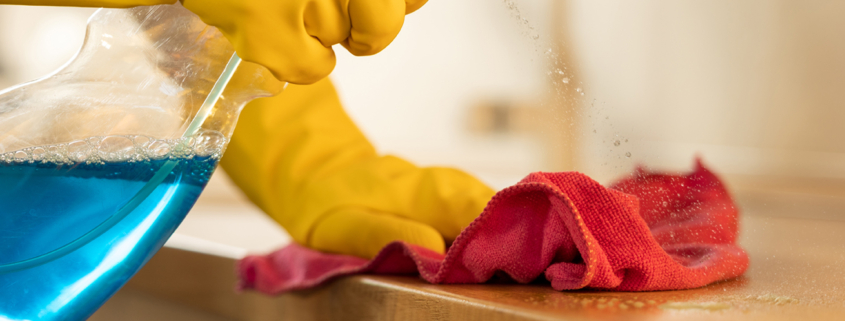
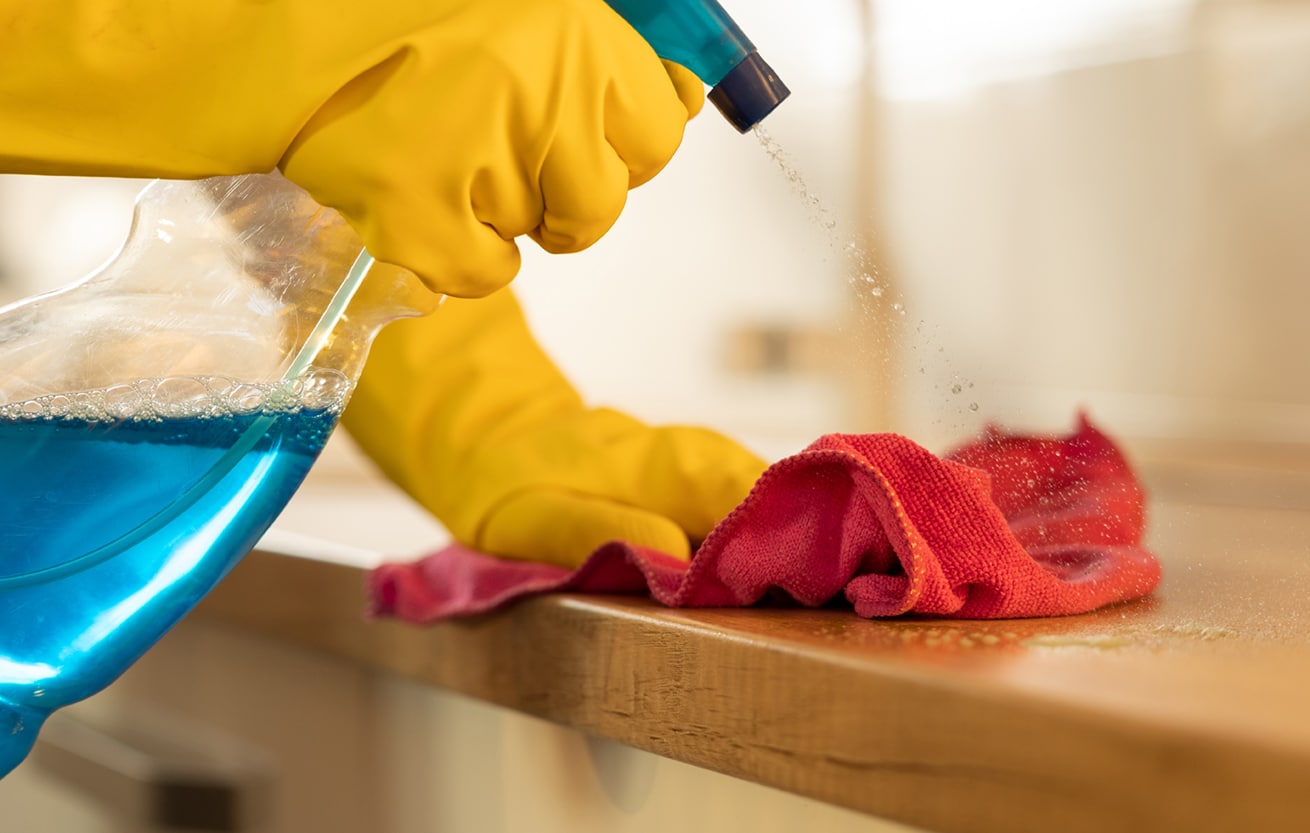
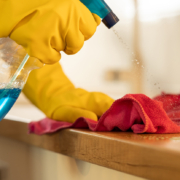

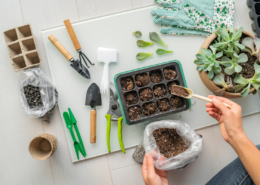
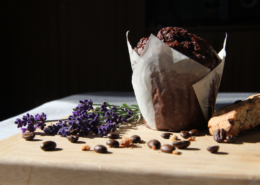


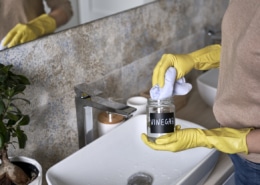

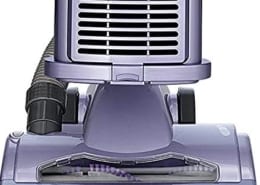
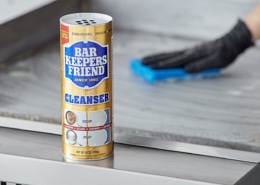
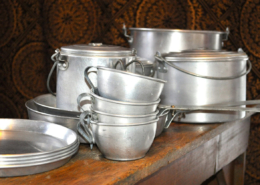


Hi Mary,
Are these cleaners still effective if not all used in the day they are made? I’d love to try them but don’t want to waste ingredients.
Yes. The only ingredient you would need to use judiciously is hydrogen peroxide (which is not in any of these recipes). Hydroen peroxide is generally effective for up to 6 mos of opening the bottle, provided it is stored in a dark place (it dissapates quickly in the presence of sunlight).